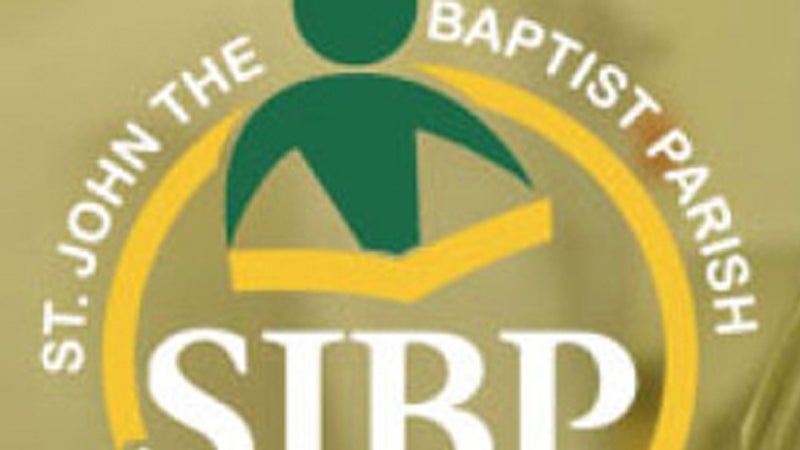School Board denies industry tax exemptions
Published 1:00 am Saturday, November 16, 2019
RESERVE — The community’s voices were heard during the St. John the Baptist Parish School Board meeting Thursday night, setting a historic precedent for how industry tax exemptions will be handled at the local level.
School Board members voted to deny industrial tax exemption requests from Garyville-based Marathon Petroleum Company LP and Nalco Company LLC.
Marathon requested an exemption for $25,382,039, which would have amounted to $4.7 million less in property tax revenue for St. John Schools and parish services, according to St. John Assessor Lucien Gauff III. Nalco was requesting an exemption of $8,586,946, which would have amounted to $938,000 less in tax revenue for the schools and parish services.
The process for approving industrial tax exemptions has changed since Governor John Bel Edwards took office. Originally approved at the state level without community input, exemptions now require approval from local entities.
This was the first time the St. John Parish School Board, the sheriff and the Parish Council were tasked with approving or denying the exemption requests.
Ten people spoke during the public comment period before the votes. This number included eight community members urging the school board to deny the exemptions and two representatives of Nalco urging approval.
No representatives from Marathon were present. Rather, the company sent a letter to the School Board requesting the vote be delayed to the Dec. 12 School Board meeting to give Marathon employees a chance to answer questions. The request was ignored as the School Board voted to deny the Marathon and the Nalco requests 9-1, with Board member Ali Burl as the only voice of opposition.
Local advocate Carolyn Batiste was the first to address the School Board during the public comment. She noted that Louisiana ranks sixth among the chemical producing states, while ranking 45th in health, 48th in education, 49th in economy and 50th in opportunity. She said tax exemptions hurt local services and aren’t necessary to attract industrial growth.
“Businesses come to Louisiana because of our location and the source of the raw materials we have to offer,” Batiste said. “Chemical industry wants to be here because of the port that is in the top 5 of the world. We have what they need. Why are they continuing to wait 10 years, 5 years, 30 years, for them to continue to hold on instead of paying taxes?”
Community activist Shondrell Perrilloux said approval of the exemptions would be “a slap in the face” to the hardworking taxpayers who have to shoulder the revenue loss with increased millages. Demetria Carter of the East St. John Alumni Association said she would not vote for sales tax increases to benefit the school board in the future if the exemptions were approved.
Annette Houston, a retired 40-year employee with St. John Parish schools, said it is depressing to see the current state of education. She said St. John Parish has suffered from $885 million in lost revenue in the past 20 years due to Marathon exemptions.
“What could we have done with $885 million?” she asked.
During the public comment, other speakers noted greater investments into education could benefit industry in the long run by with an educated workforce and more local hires.
Bruce Fatheree and James Kulesa spoke on behalf of Nalco Company LLC. Fatheree said the exemptions have made Garyville a standout refinery in a competitive industry. He said denying the exemption could set a bad precedent for future development in this region.
“If industry continually gets voted down, they won’t come,” Fatheree said. “They will build somewhere else.”
Plant leader James Kulesa said Nalco is currently the No. 3 taxpayer in the parish with approximately $1 million paid to the community in property taxes each year. Kulesa said he is actively engaged in the community as a member of several local organizations, including St. John United Way and the St. John Business Association. According to Kulesa, Nalco donates to the Andouille Festival, summer camps, charity golf tournaments, Toys for Tots, the St. John Sheriff’s Office body armor fund and much more on a local level.
Marathon Petroleum, the No. 1 taxpayer in the parish, also participates in extensive philanthropic efforts in the community. Efforts have included the Andouille Festival, backpack giveaways, River Region Chamber of Commerce events, and donations to the United Way, Veterans and education based causes.
However, school board members were not convinced the giving back, even if it totaled more than $1 million, could equate to the millions lost through exemptions.
“I think the best thing we can do for our community is improve our school system, School Board member Debbie Schum said in response to Nalco’s request.
Board President Patrick Sanders said his mind was made up to deny the request before the meeting. After he pointed out that the Nalco plant leader did not even live in St. John, Kulesa said he was “hurt.”
“Just because I don’t live in this parish doesn’t mean I don’t care about this parish,” he said.
Together Louisiana, a statewide network of more than 250 religious and civic organizations, hosted two community meetings leading up to the school board decision. According to Together Louisiana, Texas has an industrial sector five times bigger than Louisiana’s. However, Texas has $2.1 billion in tax-exempt business property statewide, and the Marathon Petroleum Garyville Refinery reportedly has $3.1 billion in exempt property alone. As exemptions expire, millions of dollars in revenue is expected to mature onto the local tax roll within the next 1-2 years.
Marathon Petroleum did not respond to a request for comment as of press time Friday morning.
Tish Taylor, a member of the Concerned Citizens of St. John, said the school board’s decision left her feeling hopeful.
“It feels wonderful that we can make something happen in this community that will set a precedence all over the world,” she said.






